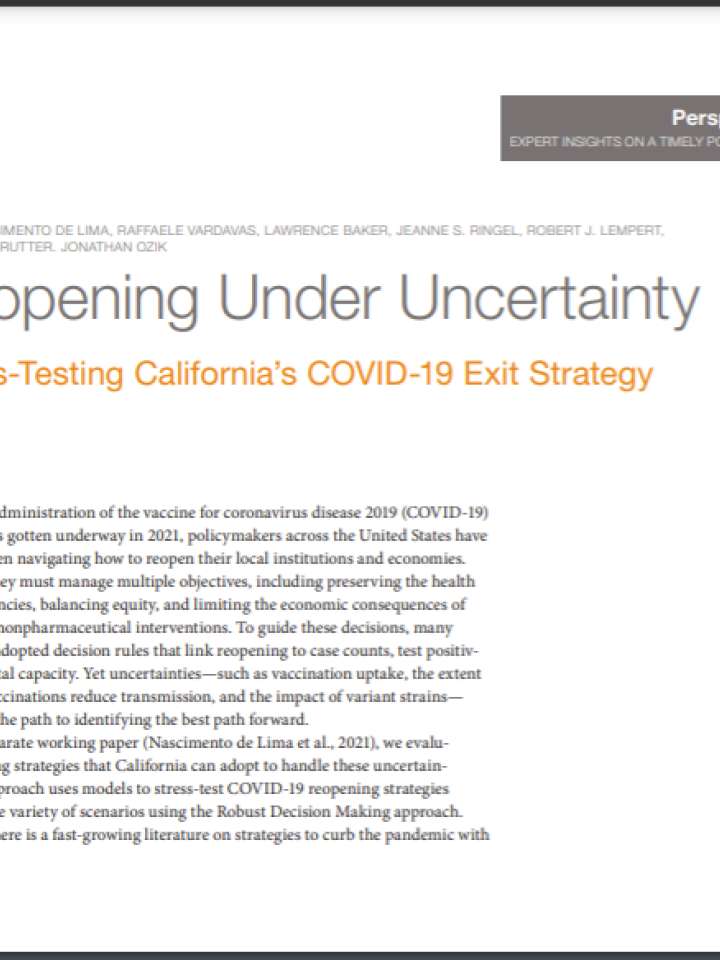Reopening under uncertainty: stress-testing California's COVID-19 exit strategy
This publication is the first analysis that explicitly sets out to stress-test California’s COVID-19 reopening plan with a focus of finding robust, non-dominated strategies. As administration of the vaccine for COVID-19 has gotten underway in 2021, policymakers across the United States have been navigating how to reopen their local institutions and economies. They must manage multiple objectives, including preserving the health of constituencies, balancing equity, and limiting the economic consequences of COVID-19 nonpharmaceutical interventions. To guide these decisions, many states have adopted decision rules that link reopening to case counts, test positivity, or hospital capacity. Yet uncertainties—such as vaccination uptake, the extent to which vaccinations reduce transmission, and the impact of variant strains— complicate the path to identifying the best path forward.
This approach uses models to stress-test COVID-19 reopening strategies under a wide variety of scenarios using the Robust Decision Making approach. This research highlights four high-level, widely applicable characteristics of reopening strategies that the researchers would recommend based on the analysis:
- Encourage inexpensive adaptation measures,
- begin cautiously,
- adapt as people are vaccinated, and
- gradual approaches work better than abrupt changes.
Explore further
